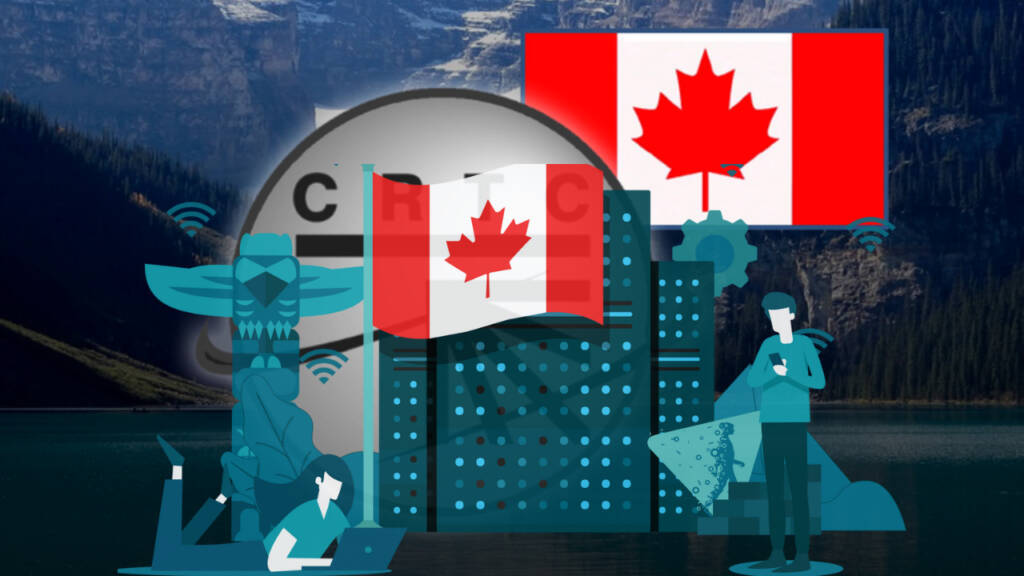CRTC Canada: Is it conceivable that a huge section of the populace doesn’t have access to the internet, mobile devices, or other types of technology in a developed country like Canada?
To everyone’s surprise, most people in Canada don’t even have the luxury of surfing the internet. And that’s because they don’t have a choice. The choice to opt for a more convenient or affordable internet service for themselves.
Canada’s internet market isn’t known for its wide variety of choices. Nonetheless, consumers looking for an economical alternative to Big Telecom have traditionally preferred independent ISPs, or to put it in plain words, cost-effective ISPs. But, it is also a harsh reality that nothing comes easy or cost-effective in Trudeau’s inflated Canada. Not only the medical facility and housing are bleeding dry out of the crisis in the country but shockingly even the internet service providers are. They are in a crisis of surviving at the helm of the current regulatory environment.
Sadly, the current regulatory climate is hastening the demise of these tiny ISPs right in front of our eyes. There won’t be any left unless something drastically alters soon.
Only this past week, Cogeco acquired the telecommunications division of independent ISP Oxio, which serves customers in British Columbia, Ontario, and Quebec. Telus just acquired Start.ca, another independent service provider situated in southwest Ontario. The acquisitions of Start.ca and Oxio are only the most recent in a string of stealth takeovers that are destroying Canada’s communications industry.
Additionally, during the past year, competitors Ebox, Distributel, Altima, and Vmedia divided between Bell, Telus, and Vidéotron have all gone out of business. Also, don’t forget about Rogers’ upcoming acquisition of Shaw.
Read More: The Chinese connection behind Canada’s telecom sector crisis
The Canadian Radio-Television and Telecommunications Commission (CRTC) and Industry Minister of Canada François-Philippe Champagne are directly to blame for the circumstances that have forced independent Internet service providers to sell their businesses. Big Telecom may be waiting to seize on vulnerable independent providers.
Both the CRTC and the Canada federal government have repeatedly failed to defend small providers. They have repeatedly sided with Big Telecom in their decisions over the past five years, undermining the sustainability of small ISPs in Canada.
If we take into account the CRTC Canada. The wholesale rates system that they regulate was initially created to provide Canadians with more options; you are not restricted to the services that are provided by the firm that owns the wires that go to your home. Other providers can also supply services through that connection. Independent operators are forced to pay expensive fees just to provide basic services as a result of the CRTC’s failure to adjust the wholesale tariffs that small ISPs pay to access core internet infrastructure.
The CRTC first reduced rates in 2019, which instantly resulted in lower internet prices across the Canada. Then, incredulously, it reversed its own judgement and increased rates once more in 2021. And despite their promises to give independent internet service providers wholesale access to cutting-edge fibre technology, they haven’t done so even after 8 years. So, smaller ISPs simply cannot compete with the incumbents’ speedier connections.
Read More: Ethics commissioner of Canada hits Trudeau where it hurts the most
According to a study undertaken by the Competition Bureau (Bureau) to evaluate the state of competition in Canada’s broadband industry, over 1,000,000 Canadian families depend on smaller, affordable and more competitive internet service providers to get their internet services.
In the world of business, the capitalist environment of companies in the natural world is often like, where big fish eat small ones in the pond. This metaphor aptly describes the cutthroat nature of the telecom sector in Canada currently, where competition is fierce and only the strongest survive. In this environment, larger companies often have the upper hand, with more resources and greater market power, allowing them to dominate and swallow up smaller players. It is a world where profits are king and growth is the ultimate goal, regardless of the human cost. Amidst this seemingly bleak landscape, the small ones have just lost and who is to blame for all that? Certainly, Canada and its corrupt organisation CRTC.
https://www.youtube.com/watch?v=doOe_Ibe-Uo&t=19s
